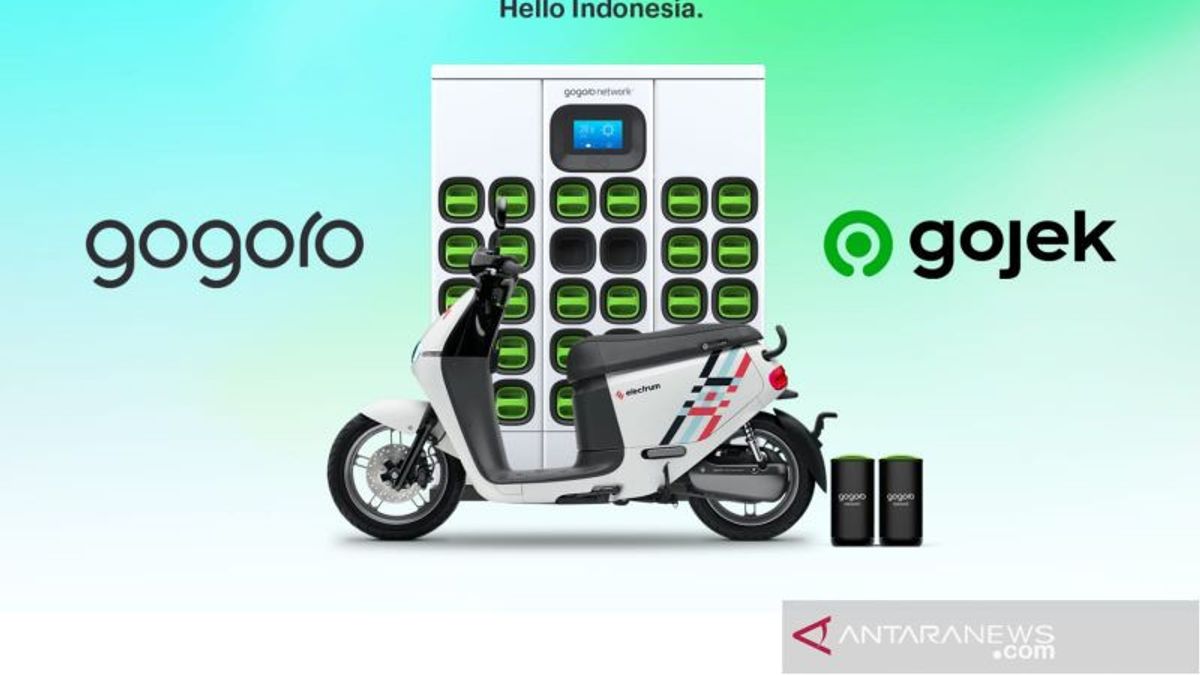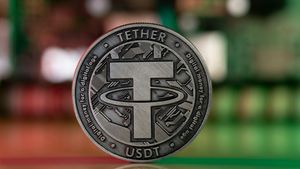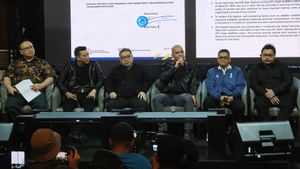JAKARTA - Gojek and Gogoro have just announced a strategic partnership to accelerate the adoption of two-wheeled electric vehicles in Indonesia. This strategic collaboration brings together two technology companies to focus on bringing about a new era of urban transportation.
"One of the biggest challenges in Indonesia and around the world today is the effort to transform our urban transportation mode into a new generation mode of transportation, which utilizes two-wheeled electric vehicles that are smart, sustainable, and can be accessed and accepted by the wider community," said the founder and Gogoro CEO, Horace Luke in a statement received by VOI, Wednesday, November 3.
"Together with Gojek and through the support of the Indonesian government, we are on the right track to make it happen," he added.
This electric vehicle will use the battery swap method from Gogoro, which is the latest innovation in electric refueling.
"By combining Gojek's broad reach in Indonesia and Gogoro's capabilities, we can accelerate change and share the benefits of electric vehicles with more driver partners and consumers. This is a real step for Gojek to become a carbon-neutral platform and transition to 100 percent electric two-wheeled vehicles by 2030," said Gojek Co-Founder and CEO, Kevin Aluwi.
Electric Motor Trial
First, the Gojek and Gogoro trials will feature 250 Gogoro Smartscooters and four GoStation swap battery stations which will be located at Pertamina gas stations. Together, the two companies plan to increase trials to 5,000 electric two-wheeled vehicles and bring in more swap battery stations. Jakarta is the first location to be a test site.
Gogoro itself utilizes artificial intelligence to manage battery availability and security. Therefore, this electric vehicle is claimed to be safe for use by Gojek driver partners.
The Gojek and Gogoro trials are also in line with Gojek's sustainability goals and ongoing efforts to reduce the carbon footprint. In April this year, Gojek launched the first Sustainability Report, which also explained Gojek's target to achieve Zero Emissions by 2030, including its plan to transition 100 percent of its two-wheeled fleet to electric vehicles.
As part of this plan, Gojek is looking for ways to develop a comprehensive electric vehicle ecosystem, by leveraging technology to overcome barriers to usage faced by driver-partners and ensure consumers have an optimal experience.
The English, Chinese, Japanese, Arabic, and French versions are automatically generated by the AI. So there may still be inaccuracies in translating, please always see Indonesian as our main language. (system supported by DigitalSiber.id)













